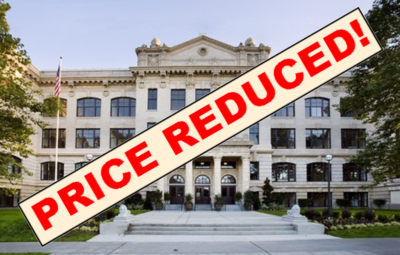Yesterday I compared King County to San Diego County in order to address some of the reasons we commonly hear that the Seattle housing market will remain strong. The focus of this post is slightly different than Part 1, where I used San Diego as an example to show that certain positive local attributes will not shield us from declining prices. Today's topics turn the question around, looking at negative attributes of San Diego's housing market that are presumably lacking here.
Since real estate trends in the Northwest are said to lag California by six months to a year, I'll be comparing the period of 2000 — 2005 in San Diego County to July 2001 — July 2006 in King County.
The two issues I'll address were brought up in the comments on Part 1:
Deejayoh: One oft cited argument that you left off (which I hear from my real-estate bull friends) is that "prices haven't gone up as much here as they have in California" so they won't go down.
E-sidedave: What about the affordability factor? Back at the peak, affordability in SD was 11%. It has never been that low here.
"Prices haven't gone up as much here as they have in California" turns out to be an entirely true statement. From 2000 to 2005, the median sales price of Single Family Homes (SFH) in San Diego County went from $260,000 to $575,000—an increase of 121%! King County's five-year SFH appreciation has been positively tame in comparison, increasing from $268,725 to $435,000—a comparatively paltry increase of 62%.
At face value, the "we haven't appreciated as much as California (and therefore aren't as vulnerable)" argument appears to hold water. However, I don't believe that looking only at total appreciation offers a complete picture. What
does offer a much more complete picture (in my opinion) is the affordability question. It makes perfect sense for home prices to shoot through the roof if incomes are experiencing a similar rise, while interest rates hit the floor. That's how people buy homes: they use their
income to pay back a
loan. It's a little thing that I like to refer to as
fundamentals.
Before I get into the affordability numbers, I want to point out a few things that I am
not attempting to show with this post. I am
not making any claim about how affordable either county "should" be for potential buyers. I am well aware that a family earning the median household income is probably aiming too high to purchase a home priced at the median. Whether or not that is a good thing is not the point here at all. I am also
not attempting to compare one county's affordability to another. I'm going to compare each county's affordability numbers to a different time period in that same county, not to the other county. There is a historical price premium that is paid to live in more desirable areas that can largely be seen in an area's average affordability index. Highly desirable areas will
always be unaffordable compared to less appealing ones.
Keeping those caveats in mind, here is what I
am interested in. During the recent ridiculous run-up in home prices, how has affordability in each county
changed? In order to find out, I'll be calculating Tim's Affordability Index (explained in my
soft landing post) for San Diego and King Counties.
Let's see how San Diego stacks up.
San Diego County 2000
Median Closed SFH: $260,000
Median Household Income: $47,236
Interest Rate: 8.06%
Tim's Affordability Index: 76.9
San Diego County 2005
Median Closed SFH: $575,000
Median Household Income: $56,335
Interest Rate: 5.86%
Tim's Affordability Index: 51.8
Yowza! That's a
25.1 point drop in affordability in just five years,
despite interest rates over two points lower. No wonder home prices in San Diego have declined since last year. So what about King County? Surely since our home appreciation has been so much lower, our affordability dropped much less than San Diego, right?
King County July 2001
Median Closed SFH: $268,725
Median Household Income: $53,610
Interest Rate: 7.13%
Tim's Affordability Index: 92.5
King County July 2006
Median Closed SFH: $435,000
Median Household Income*: $59,500
Interest Rate: 6.76%
Tim's Affordability Index: 65.8
Apparently not. In fact, King County affordability has taken a
larger hit than San Diego County,
plunging 26.7 points in the past five years. Although San Diego home prices shot up much further than King County homes, their income also increased 19% to King County's 11%, while interest rates during the 2000-2005 period took a much more favorable turn than 2001-2006 (2.2 point drop vs. a 0.37 point drop).
So when you look at the complete picture, factoring in all of the home buying "fundamentals," King County actually seems slightly
more poised for a drop than San Diego was last year. Does that mean that we definitely
will see a drop in prices? Obviously not, as there are many more factors at work, including the national economy, market sentiment, and acts of God. However, I think we can safely say that there is little comfort to be found (with respect to the housing market) in comparing the Northwest to California.
Sources:(
San Diego County Home Prices: The Real Estate Report)
(
King County Home Prices: NWMLS)
(
2000-2001 Incomes: American Community Survey)
(
2005 Incomes: American Community Survey)
(
Interest Rates: Federal Reserve)
*
2006 income for King County was (optimistically) calculated by assuming a yearly increase from 2005 to 2006 ($1,130) of roughly 1.5 times the ACS' estimated yearly increase for 2003-2005 ($745/year).



